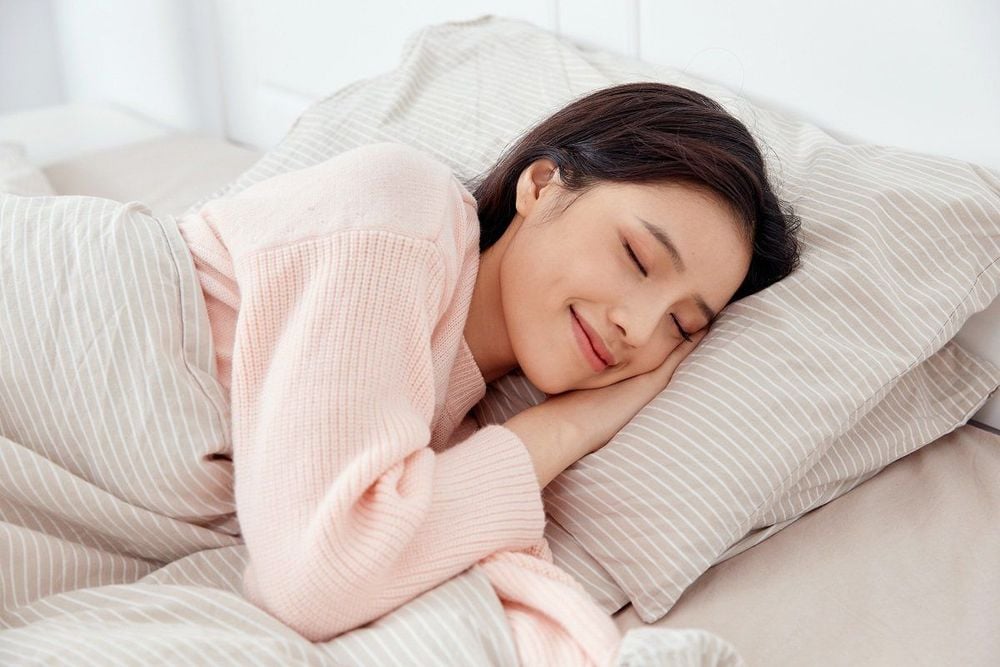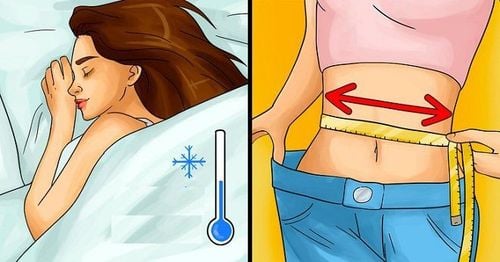Using the wrong pillow can cause insomnia and body aches, such as back pain or neck pain while sleeping. Sleeping without a pillow can only be helpful if you sleep in a certain position. The following article will show you the benefits and risks of sleeping without a pillow.
1. Benefits of sleeping without a pillow
Wrong sleeping positions at night affect sleep quality and can lead to aches and pains during the day, such as neck or back pain when waking up. Pillows are important because they keep the head in line with the neck and spine while sleeping. If the spine or neck is not in a neutral position, it can cause waking up at night and cause insomnia.
1.1 Reduce neck and back pain
For some people, sleeping with a pillow pushes the head too far back, causing a curved spine and putting pressure on the lower back. People who do not sleep with a pillow can sleep on their stomach. Sleeping without a pillow can help align the spine during sleep, reducing back pain or neck stiffness. Additionally, using a very thin pillow can be helpful in reducing pain and fatigue.

1.2 Reduce wrinkles
Studies have shown that pillows can compress the skin while sleeping, especially in people who sleep on their stomachs or sides. Over time, this can lead to sleep wrinkles and contribute to visible signs of aging. Sleeping without a pillow can cause wrinkles to disappear.
1.3 Reduce acne
Bacteria on pillows can make skin conditions worse. Sleeping without a pillow will help reduce your exposure to acne-causing agents.
2. Risks of sleeping without a pillow
Sleeping without a pillow may help some people who sleep on their stomachs, but it’s not a good idea for everyone. Side or back sleepers often find that sleeping without a pillow puts pressure on their neck and back. This can reduce the quality of sleep and lead to back pain and neck strain while sleeping.
2.1 Bad posture
When sleeping on your stomach, using a pillow can help align your spine better. However, because most of your weight is in the middle of your body, sleeping on your stomach makes it difficult for your spine to stay in a neutral position, increasing pressure on your back and neck, making it difficult for your spine to maintain its natural curve. To promote better stomach sleeping posture, place a pillow under your belly and pelvis. This will elevate your midsection and reduce pressure on your spine, even if you don’t sleep with a pillow.
In other positions, sleeping without a pillow is not ideal. It puts your spine in an unnatural position and strains your joints and muscles. It’s best to use a pillow if you sleep on your back or side.

2.2 Neck pain
Similarly, the relationship between sleeping without a pillow and neck pain also has things to keep in mind. If you sleep on your stomach, removing your pillow can help your neck stay in a more natural position. However, when you sleep on your stomach, your head is turned to one side, and your neck is also stretched backwards. This causes pain and discomfort, and can strain the neck joints and muscles. Additionally, if you sleep without a pillow, the pressure on your neck muscles is unevenly distributed. You are more likely to experience neck pain, stiffness, and headaches.
In short, the way you use your pillow can affect the quality of your sleep. Sleeping without a pillow can help some stomach sleepers by keeping their spine and neck aligned while they sleep, reducing back pain and neck strain while they sleep. While there are potential benefits to sleeping without a pillow, there are also drawbacks. However, people who sleep without a pillow on their back or side may experience back pain or neck strain while they sleep.
Please dial HOTLINE for more information or register for an appointment HERE. Download MyVinmec app to make appointments faster and to manage your bookings easily.
References: medicalnewstoday.com - healthline.com













